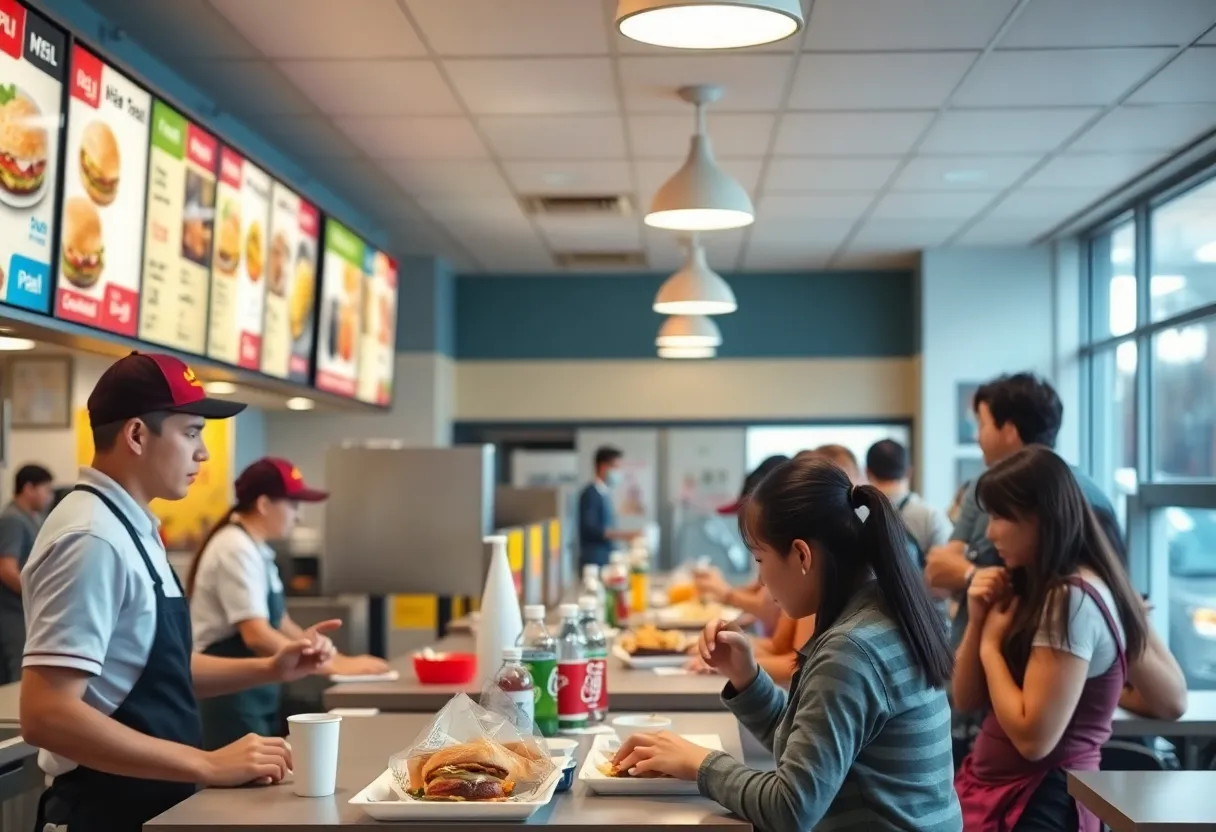News Summary
In April 2024, California’s FAST Act raised the minimum wage for fast food workers to $20 per hour. This legislation affects around half a million employees, aiming to improve financial stability, though it has led to job losses and mixed reactions in the industry. While some workers benefit from higher wages, others face reduced hours. The impacts of the Act continue to spark debate among economists and business owners, with further discussions planned for upcoming council meetings.
California implemented a significant change for fast food workers in April 2024 with the passing of the Fast Food Accountability and Standards Recovery (FAST) Act, which raised the minimum wage for these workers to $20 per hour. This bold move affected approximately half a million employees across the state, surpassing California’s overall minimum wage of $16.50, and aimed to improve the financial stability of those in the fast food industry.
The decision to implement the FAST Act has sparked a spectrum of public opinions, with both vocal support from labor advocates and fierce resistance from business owners who expressed concern over the potential economic repercussions. A statewide council was formed under the Act to oversee the setting of wage and safety regulations specifically for larger fast food chains operating more than 60 locations nationwide.
Despite the boost in wages, mixed results have emerged one year post-implementation. Economists remain divided on the law’s impact on employment levels, noting a notable decline in jobs within the fast food sector. Data from March 2025 indicates a 3.1% decrease in employment at California’s limited-service restaurants, equating to a loss of over 22,600 jobs in the fast food industry. This decline is perceived as sharper than the national employment growth rate of 0.8% in the fast food sector during the same time frame.
Fast food restaurant owners have taken steps to mitigate the increased wage costs by reducing employee hours and instituting hiring freezes, leading to some workers experiencing diminished weekly working hours. Feedback from employees reveals a mixed bag of responses; while some have found relief from financial stress due to increased wages, others report that their overall earnings have not significantly changed due to reduced hours.
Reports detailing job losses have underscored the adverse effects of the wage hike. For instance, Christopher Thornberg, an economist, recently indicated that the fast food sector has indeed seen substantial job losses attributed to the wage increase. This assessment contrasts with earlier analyses that suggested negligible impacts on employment levels.
Amidst the discussions surrounding job losses, proponents of the FAST Act, including economists from institutions like UC Berkeley, argue that the increase has positively impacted workers, with wages rising on average by approximately 8% to 9%. They highlight that fast food employees now earn more than those at the state minimum wage level, providing a better opportunity for many to cover living expenses and enhance their financial well-being.
However, even with higher wages, many fast food workers still face challenges, including changes in scheduling that result in fewer total hours worked per week. Concerns from restaurant owners about declining sales have emerged as another consequence of the wage increase. Some businesses reported significant drops in earnings over the past year, prompting franchise owners to rely on savings to absorb the rising wage costs, which led to extensive cuts in labor hours without resorting to layoffs.
In the first half of the year following the wage policy implementation, fast food prices in California saw a nominal increase of 1.9%, suggesting that some of the increased labor costs may have been passed on to consumers. There is ongoing scrutiny regarding how these price adjustments could influence customer behavior and business sustainability in the long term.
Looking ahead, the next Fast Food Council meeting is scheduled for January 23, 2025, during which discussions may include a potential wage increase to $20.70 per hour. However, opponents of further wage increases argue that such adjustments could be detrimental to small businesses that are already struggling to manage rising costs, indicating that further financial hardships may ensue if wages are raised again.
While discussions and analyses continue, the fundamental questions regarding the economic impacts of the FAST Act and its intended benefits for California’s fast food workforce remain at the forefront of public and economic discourse.
Deeper Dive: News & Info About This Topic
- CNN: California Fast Food Wage Hike One Year High Prices Jobs
- Wikipedia: Minimum Wage
- KTLA: Impact of Minimum Wage Increase
- Google Search: California Fast Food Wage Hike
- Reuters: California Could Bump Fast Food Minimum Wage
- Encyclopedia Britannica: Minimum Wage
- The Guardian: California Fast Food Minimum Wage
- Google News: California Minimum Wage Impact

Author: STAFF HERE COSTA MESA WRITER
The COSTA MESA STAFF WRITER represents the experienced team at HERECostaMesa.com, your go-to source for actionable local news and information in Costa Mesa, Orange County, and beyond. Specializing in "news you can use," we cover essential topics like product reviews for personal and business needs, local business directories, politics, real estate trends, neighborhood insights, and state news affecting the area—with deep expertise drawn from years of dedicated reporting and strong community input, including local press releases and business updates. We deliver top reporting on high-value events such as the OC Fair, Concerts in the Park, and Fish Fry. Our coverage extends to key organizations like the Costa Mesa Chamber of Commerce and Boys & Girls Clubs of Central Orange Coast, plus leading businesses in retail, fashion, and technology that power the local economy such as Vans, Experian, and South Coast Plaza. As part of the broader HERE network, including HEREAnaheim.com, HEREBeverlyHills.com, HERECoronado.com, HEREHollywood.com, HEREHuntingtonBeach.com, HERELongBeach.com, HERELosAngeles.com, HEREMissionViejo.com, HERESanDiego.com, and HERESantaAna.com, we provide comprehensive, credible insights into California's dynamic landscape.


